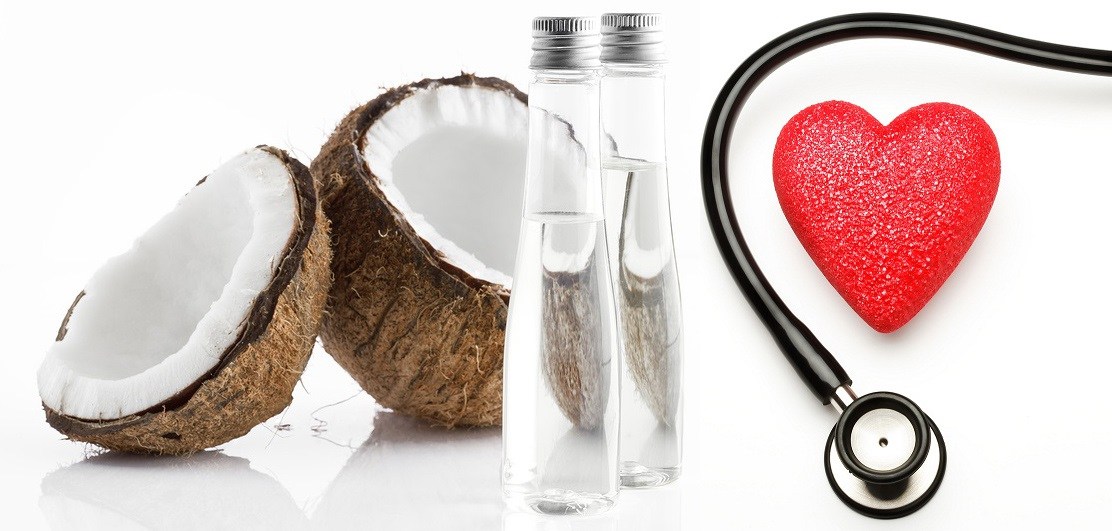
by Brian Shilhavy
Editor, Health Impact News
Another peer-reviewed study was published this month (August 2017) showing dietary virgin coconut oil has beneficial heart-health effects regarding lipid profile, renal status, hepatic antioxidant defense system, and cardiovascular risks.
The study was conducted by researchers in Nigeria in the Department of Medical Biochemistry, Faculty of Basic Medical Sciences, at Federal University.
The title of the study is: Dietary Supplementation with Virgin Coconut Oil Improves Lipid Profile and Hepatic Antioxidant Status and Has Potential Benefits on Cardiovascular Risk Indices in Normal Rats.
Here is the abstract of the study:
Research findings that suggest beneficial health effects of dietary supplementation with virgin coconut oil (VCO) are limited in the published literature.
This study investigated the in vivo effects of a 5-week VCO-supplemented diet on lipid profile, hepatic antioxidant status, hepatorenal function, and cardiovascular risk indices in normal rats.
Rats were randomly divided into 3 groups: 1 control and 2 treatment groups (10% and 15% VCO-supplemented diets) for 5 weeks.
Serum and homogenate samples were used to analyze lipid profile, hepatorenal function markers, hepatic activities of antioxidant enzymes, and malondialdehyde level.
Lipid profile of animals fed VCO diets showed significant reduction in total cholesterol (TC), triglyceride (TG), and low-density lipoprotein (LDL) levels; high-density lipoprotein (HDL) level increased significantly (p < .05) compared to control; and there were beneficial effects on cardiovascular risk indices.
The level of malondialdehyde (MDA), a lipid peroxidation marker, remarkably reduced and activities of hepatic antioxidant enzymes-superoxide dismutase (SOD), catalase (CAT), and glutathione peroxidase (GPx)-were markedly increased in VCO diet-fed rats.
The VCO diet significantly modulated creatinine, sodium (Na+), potassium (K+), chloride (Cl-), alanine aminotransferase (ALT), aspartate aminotransferase (AST), and alkaline phosphatase (ALP) compared to control.
The findings suggest a beneficial effect of VCO on lipid profile, renal status, hepatic antioxidant defense system, and cardiovascular risk indices in rats.
Real Science Regarding Coconut Oil Contradicts U.S. Propaganda by American Heart Association (AHA)
This new study and many other previous studies clearly contradict the propaganda espoused by Big Pharma and U.S. Government nutritional guidelines, which has been waging a war against saturated fats since the 1970s, and the McGovern Report that promoted the false hypothesis that saturated fats led to an increase in lipid cholesterol levels and an increased risk for heart disease.
This theory, the lipid theory of heart disease, has been shown to be false repeatedly by the published medical literature, yet it still remains the official USDA dietary advice. The theory was questioned by scientists, even in the 1970s, before the McGovern committee addressing dietary fats.
See also:
Study: Government Guidelines on Low-fat Diet Were Not Supported by Science
In spite of this lack of science to support the lipid theory of heart disease, the American Heart Association (AHA) earlier this year (2017) published a “Presidential Advisory” on “Dietary Fats and Cardiovascular Disease” in which it condemned coconut oil, and recommended that people not consume it.
The “mainstream” corporate sponsored media published the AHA’s propaganda without even bothering to investigate the science. There have been numerous studies published over the past several years showing that coconut oil is heart healthy. Here is a sample:
Study: Coconut Oil Helps Hypertension – Science Based Health Benefits of Coconut Oil Keep Increasing
Study: Coconut Oil’s Lauric Acid Reduces High Blood Pressure
Study: Virgin Coconut Oil Effective in Treating High Blood Pressure
Study: Traditional Virgin Coconut Oil High in Antioxidants and Reduces Oxidative Stress in Heart, Kidney, and Liver
New Extensive Research From Sri Lanka Shows Coconut Oil Has No Risk to CVD, and that Coconut Residue has Great Promise for Treating Heart Disease
Coconut Oil and Heart Disease
Coconut Oil is Beneficial for Your Heart: Shining the Truth on Mainstream Media’s Negative Attacks Against Coconut Oil
The American Heart Association Has Been Consistently Wrong Representing the Science on Dietary Fats and Oils

It has been well documented that what replaced saturated fats in the American diet was hydrogenated polyunsaturated fats produced from the two most profitable crops in the world for the United States: corn and soy. These two crops are heavily subsidized by American taxpayers, so that the U.S. dominates corn and soybean sales worldwide.
During World War II the Japanese prevented trade from many Southeast Asian countries (like the Philippines) and the U.S., cutting off supplies of the “tropical oils,” coconut oil and palm oil.
Technology was developed to extract dietary oils from seeds that had never been used previously to supply dietary oils in the human food chain, and this caused a boon to corn and soybean crops which could now be used to produce polyunsaturated oils. To remain shelf stable and be used as a replacement for saturated fats, they used a process of hydrogenation. It was later learned that a by product of this industrial process was toxic trans fats, which have now been shown to be harmful to human health.
To convince the public that they should switch from traditional saturated fats to these new polyunsaturated fats, studies were funded to try and show that polyunsaturated fats were healthier.
In 2013, a report published in the British Medical Journal that had resurrected data from a 1960s study, the Sydney Diet Heart Study, which was one of the main studies the AHA had used to try and condemn saturated fats and show polyunsaturated fats were healthier.
The British Medical Journal examined the data and found that it supported a completely different conclusion about the effects of polyunsaturated oils on heart disease. Not only does the evidence not support the claim that polyunsaturated fats prevent heart disease, it shows that just the opposite is true. The conclusion from the abstract:
Advice to substitute polyunsaturated fats for saturated fats is a key component of worldwide dietary guidelines for coronary heart disease risk reduction. However, clinical benefits of the most abundant polyunsaturated fatty acid, omega 6 linoleic acid, have not been established. In this cohort, substituting dietary linoleic acid in place of saturated fats increased the rates of death from all causes, coronary heart disease, and cardiovascular disease. An updated meta-analysis of linoleic acid intervention trials showed no evidence of cardiovascular benefit. These findings could have important implications for worldwide dietary advice to substitute omega 6 linoleic acid, or polyunsaturated fats in general, for saturated fats. (Italics added.)
Philip C. Calder, Professor of Nutritional Immunology in the faculty of Medicine at the University of Southampton wrote an editorial on the study. Some quotes:
American Heart Association advice on omega 6 PUFAs cast into doubt
The American Heart Association recently repeated advice to maintain, and even to increase, intake of omega 6 PUFAs.4 This advice has caused some controversy, because evidence that linoleic acid lowers the risk of CVD is limited—most trials that claimed to investigate the effect of exchanging saturated fat for linoleic acid involved multiple dietary changes or multiple interventions (or both). In particular, studies lowered trans fatty acid intake or increased omega 3 PUFA intake (or both) at the same time as increasing linoleic acid intake. The impact on CVD risk or mortality of replacing saturated fat with linoleic acid without changes in other fatty acids has rarely been investigated, and no large randomised controlled trial has recently explored this important question.
These findings argue against the “saturated fat bad, omega 6 PUFA good” dogma and suggest that the American Heart Association advisory that includes the statement “higher [than 10% of energy] intakes [of omega-6 PUFAs] appear to be safe and may be even more beneficial”4 may be misguided.
Larry Husten, a medical journalist covering cardiology news at Forbes, also blogged about this new report:
The American Heart Association has long urged people to increase their consumption of polyunsaturated fatty acids (PUFAs), including omega 6 PUFAs, and reduce their consumption of saturated fatty acids. The recommendations are based on the simple observation that PUFAs lower total and LDL cholesterol while SFAs have the opposite effect. However, the cardiovascular effects of substituting PUFAs for SFAs have never been tested in randomized, well-controlled clinical trials, and a growing proportion of experts now suspect that simple changes in total cholesterol and LDL cholesterol may not tell the whole story.
It is very clear that the American Heart Association cannot be trusted to give sound advice on dietary oils. Their misinformation clearly benefits Big Pharma and their blockbuster billion-dollar cholesterol-lowering drug industry, and the U.S. dominance in world edible oils with corn and soybean oil.
This propaganda and misinformation has harmed not only the U.S. population, but also poorer tropical countries who bought into the lipid theory of heart disease and abandoned their traditional fats and oils in favor of new processed polyunsaturated oils.
It is no surprise that studies like this one out of Nigeria, and many others from places like India, Sri Lanka, the Philippines, and other tropical oil producing countries, are now rediscovering the health benefits of their own native tropical oils. See:
War on Saturated Fats Has Harmed People in Poor Countries Who Shunned Traditional Fats Like Coconut Oil
How Africans have been fooled to think coconut oil and other traditional foods from their culture are unhealthy
Virgin Coconut Oil and Alzheimer’s Disease
A Holistic Guide to Geriatric Care – eBook
In this book we look at the problems and causes of Alzheimer’s as they are related to an epidemic of prescription drugs being marketed to seniors, and we look at the strong evidence for dietary intervention, starting with coconut oil.
We bring you the stories of 10 different families who saw Alzheimer’s lessened or reversed by adding coconut oil to their diet, which is representative of thousands of others who are experiencing similar results. We offer guidelines on usage and types of coconut oil to consider, as well as other non-drug tips for holistic geriatric care.
Our target audience is the millions of caregivers out there loving caring for our senior population who will find it difficult to get this information from their doctors or medical professionals not trained in these areas.
Read Virgin Coconut Oil and Alzheimer’s Disease on your mobile device!
$1.99
About the author: Unlike many people who write about coconut oil by simply reading about it, Brian Shilhavy actually lived in a coconut producing area of the Philippines for several years with his family, observing firsthand the differences between the diet and health of the younger generation and those of his wife’s parents’ generation still consuming a traditional diet. This led to years of studying Philippine nutrition and dietary patterns first hand while living in a rural farming community in the Philippines. Brian is the author of the best-selling book: Virgin Coconut Oil: How it has changed people’s lives and how it can change yours!
Read the Virgin Coconut Oil eBook on Your Mobile Device!



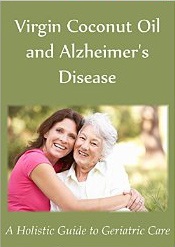


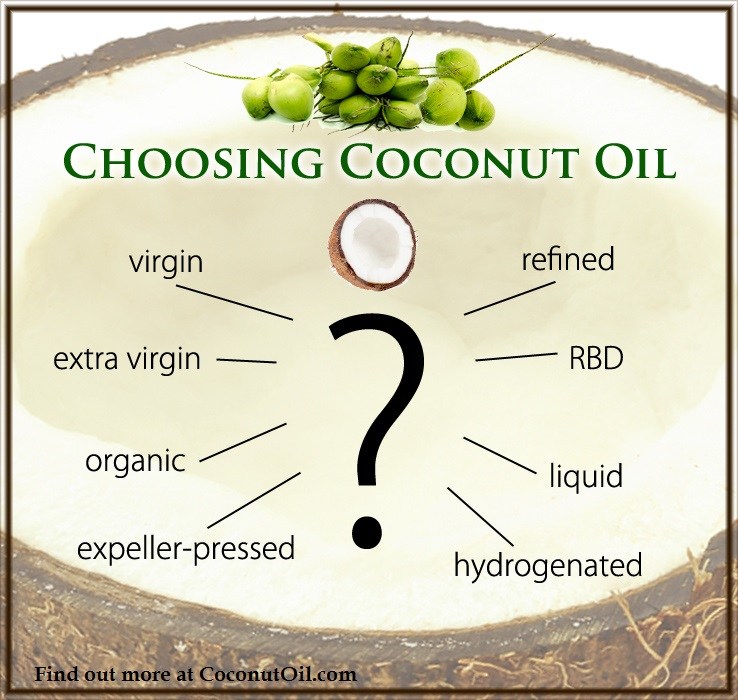

 The FDA has NOT Banned Trans Fats! Traditional Saturated Fats like Coconut Oil Continue to Shine for Alzheimer's Disease but are Condemned by U.S. Dietary Advice
The FDA has NOT Banned Trans Fats! Traditional Saturated Fats like Coconut Oil Continue to Shine for Alzheimer's Disease but are Condemned by U.S. Dietary Advice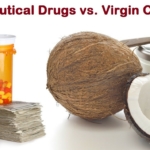 The Evidence of Coconut Oil's Superiority Over Drugs in Destroying Pathogens Continues to be Published in Peer-Reviewed Journals
The Evidence of Coconut Oil's Superiority Over Drugs in Destroying Pathogens Continues to be Published in Peer-Reviewed Journals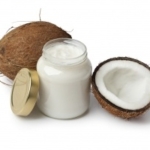 Study: Virgin Coconut Oil Protects Neuronal Damage and Mortality after a Stroke Incidence
Study: Virgin Coconut Oil Protects Neuronal Damage and Mortality after a Stroke Incidence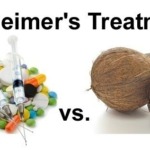 Another Phase 3 Trial Failure to Develop an Alzheimer's Drug Shows Why Virgin Coconut Oil is Needed to Prevent Dementia
Another Phase 3 Trial Failure to Develop an Alzheimer's Drug Shows Why Virgin Coconut Oil is Needed to Prevent Dementia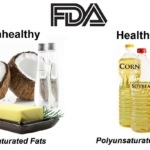 FDA Food Police want to Dictate What Foods are "Healthy" in New Guidelines Criminalizing Traditional Fats Like Butter and Coconut Oil
FDA Food Police want to Dictate What Foods are "Healthy" in New Guidelines Criminalizing Traditional Fats Like Butter and Coconut Oil
Leave a Reply